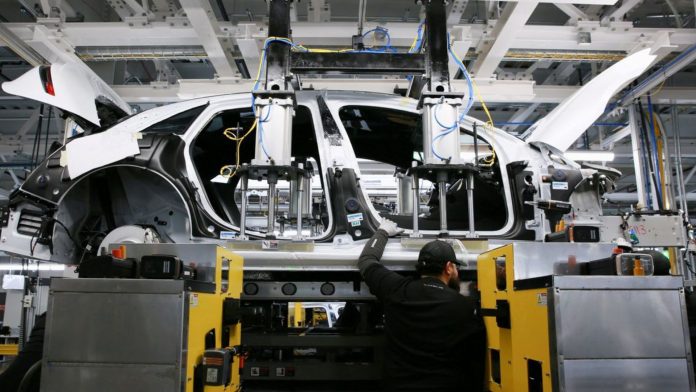The continuous emigration of automakers to the traditionally anti-union South looms over the United Auto Workers (UAW) strike. The auto industry began shifting south in the 1970s and 1980s, a region long known for its anti-labor union sentiment and low wages.
Since then, the number of higher-paid UAW workers on Detroit’s Big Three assembly lines has decreased. Additionally, automakers like Volvo, Mercedes-Benz, BMW, Toyota, and Hyundai have progressively begun hiring non-union autoworkers in the South who receive less money for essentially the same work, according to reporting from CNN.
According to Stephen Silvia, professor at American University and author of The UAW’s Southern Gamble: Organizing Workers at Foreign-Owned Vehicle Plants, “The auto industry’s move south hangs over these negotiations because now only a minority of workers are in unionized assembly plants.” He continues, “All Big Three’s plants are unionized, yet there is not a single unionized plant in the South.”
Moreover, the switch to EVs by automakers is hastening these regional patterns. Below the Mason-Dixon Line, where states have rules that make unionization considerably more complicated than in the traditional working-class bastions of the Midwest, Ford and GM are developing battery plants.
Leaders of the UAW and union supporters are attempting to address these concerns in discussions with the Big Three because they fear that the transition would result in lower pay and a cut-off of unions from the future of the auto industry.
For the UAW, it’s almost as concerning that EVs require fewer parts and, thus, less work to assemble than gas-powered vehicles. Non-union EV battery manufacturing jobs typically pay less than the veteran UAW workers’ hourly wage of about $32.
At Nissan and Volkswagen in Tennessee, Toyota in Kentucky, Mercedes-Benz in Alabama, and other foreign-owned plants in the South, the union has frequently tried but failed to establish a presence. Gov. Bill Lee of Tennessee even traveled to the Chattanooga Volkswagen plant in 2019 to entice workers to oppose the union. Nikki Haley, a former governor of South Carolina and current presidential candidate, claimed to have been a “union buster” when luring manufacturers to the state in 2015.
According to S&P Global Market Intelligence, the South now accounts for 30% of all automotive jobs, up from 15% in 1990. At the same time, the Midwest’s share has decreased from 60% to 45%. Moreover, in a 2007 CNN investigation, “Almost every foreign auto factory that has opened since the 1990s has sprouted below the Mason-Dixon Line.”



